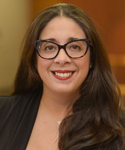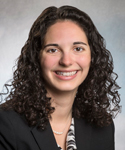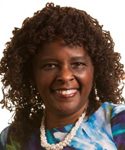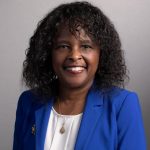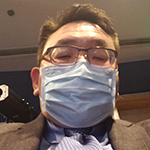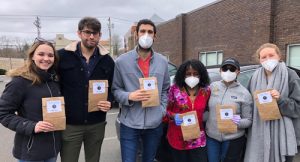
Deborah Desir and medical students from the Frank Netter School of Medicine prepare to hand out masks to physicians in the Greater New Haven area.
Physicians and other healthcare professionals spend their lives giving to their communities by providing essential services to their patients. In addition, rheumatologists may choose to support philanthropic initiatives, work to address healthcare disparities and serve as local leaders to bolster and support their neighbors. During the COVID-19 pandemic, rheumatology professionals have jumped at the chance to help in even more ways.
Outreach Projects & Activities
Getting involved with local patient groups is one meaningful and logical way for rheumatologists and rheumatology professionals to participate in community outreach. Examples:
Irene Blanco, MD, MS, has participated in efforts with lupus patient groups, working to schedule discussions and events designed to bring programming to patients in The Bronx, N.Y., where she is a professor of medicine, associate dean of diversity enhancement and rheumatology fellowship program director at Albert Einstein College of Medicine. The programs are meant to educate lupus patients about their disease, self-management and the importance of taking their medications.
Norman Gaylis, MD, a community rheumatologist in Aventura, Fla., supports his local lupus foundation, lupus support groups and the Arthritis Foundation. He has also supported the National Psoriasis Foundation through fundraising walks, as well as various philanthropic initiatives his patients are involved in.
“In general, we’ve supported the community over the years from a perspective of [patient] groups [with] rheumatic disease that we take care of,” Dr. Gaylis says. “We’ve always been available, wanting to be a resource for them.”
To provide educational resources in her community, Candace Feldman, MD, ScD, helps organize an annual educational forum with the Brigham and Women’s Hospital Lupus Center, Boston, to get health providers involved in community discussions about lupus and nutrition, exercise and research. These programs are put on in partnership with the Lupus Foundation of America, as well as other large groups and smaller, local partners.
“Partnerships with a number of community-based organizations have also allowed our team to develop a community-based lupus education program [through which] we train community leaders about lupus, and they disseminate information through their social networks,” says Dr. Feldman, who is an assistant professor of medicine at Harvard Medical School, Boston, and an associate physician at Brigham and Women’s Hospital Division of Rheumatology, Immunology and Allergy.
